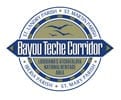Since being introduced in the Americas, horses effortlessly wove themselves into the day to day life of a burgeoning United States. As a creature synonymous with both a hard day’s work and a sense of freedom, it is no wonder that this animal lends itself so well to the idea of America. With nearly 300 horse-related events going on across Louisiana, as reported by Louisiana Horse Tourism, it is obvious now that the horse has solidified its place once again in recreation.
It is nearly impossible to talk about horse culture without bringing to mind the romanticized era of cowboys, railroads, and the rowdy West of a time past. But for St. Landry Parish, that relationship with horses reaches as far back as the 1760s. During this time of French colonialism, free men of color as well as French-speaking slaves from Africa, were tasked with managing thousands of cattle, driving the animals south to the bustling New Orleans. “And the horses and the mules were better treated than he as the caretaker,” said Conni Castille the University of Louisiana at Lafayette professor. She’s the brain behind “T-Galop: A Louisiana Horse Story”, a documentary detailing the role of the horse in south Louisiana history, interview with the Daily Advertiser.
That initial connection to horses in the emerging Creole culture carries into today. Trail rides are a tradition that celebrates this work-and-play relationship. It gives this Creole cowboy culture a way of being preserved and existing as a massive party with zydeco and traditional foods, like oxtails and tripe in your belly. The Step and Strut trail ride is one such event that originated in St. Landry Parish, but recently had success in Texas. The town of Lebeau has recently sought to revive their trail riding community with the Lebeau Posse Trail Ride in the summer. This is not the only aspect of horse culture in the parish, however.
The women of St. Landry Parish are keeping up the tradition of spectacular horsemanship. Mia Manzanares, an Opelousas native, is the two-time women’s all-around rodeo champion at the College National Finals Rodeo. She’s also the Champion in goat tying with a time of 5.9 seconds, tied the arena record of 1.7 seconds in breakaway roping, and gave the Women’s Team Championship to her college, McNeese State University. And she did all that with a torn ACL, an injury that often ends athletic careers.
The Academy of the Sacred Heart in Grand Coteau, famously the sight of the only Vatican-recognized miracle in America, has an equestrian center that trains students in three disciplines, including hunter/jumper, dressage, and western. These students are given the option to compete or just enjoy their newfound skills recreationally. Weekend lessons and horse boarding are available to non-Sacred Heart students by arrangement. You can also tour the grounds with sprawling oaks and their 1850s barn that is on the National Register of Historic Places.
St. Landry Parish is special to horse tourism in another way. It has one of Louisiana’s four racinos, a combination of a casino and racetrack. Louisiana is one of 10 states where the combination is legal. Evangeline Downs Racetrack and Casino hosts thoroughbred and quarter horse racing seasonally, which often coincides with live regional music ranging from zydeco to country. While the concept of racinos have been around since the mid-90s, Evangeline Downs is the first racino in the country to be built from the ground up.
From cowboys to horse racing, there’s a lot of traditional horse culture to see here in St. Landry Parish.
Stellar horsemanship doesn’t just take place in the rodeo arena or on manicured tracks here in St. Landry Parish, though we have those too. Whether you want to participate in a trail ride, a Mardi Gras run, or simply want to connect to horses on a more personal level, St. Landry Parish has something for you.
Mary Hawkins is the communications manager for the St. Landry Parish Tourist Commission. Contact her at hawkins@cajuntravel.com.






